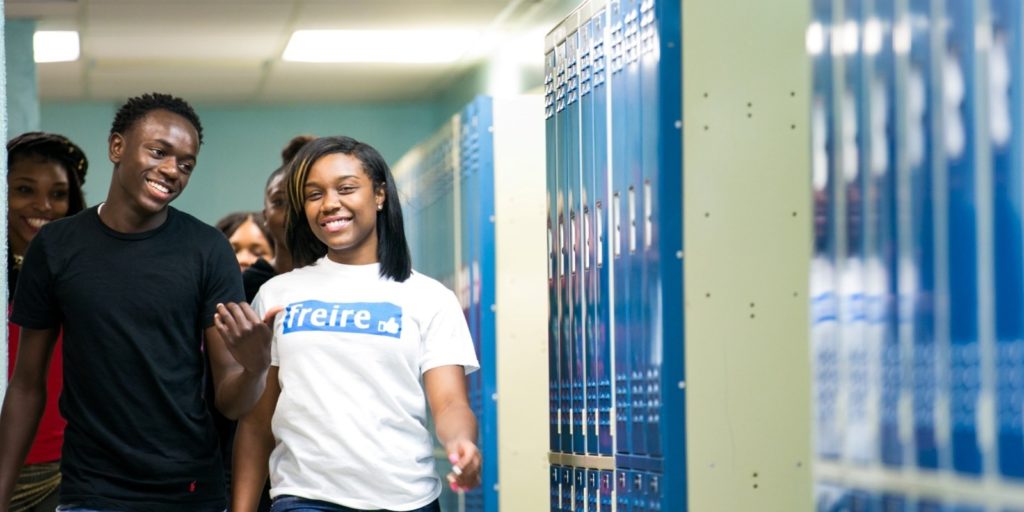Taking Care of Students’ Emotional Needs by Giving Them a Voice
Key Practice: Working with students to “find their voice” when it comes to dealing with conflict and pursuing non-violent solutions to problems.

“Students come to us with a lot of responsibilities and challenges. For many kids, it becomes possible to achieve their full academic potential only when their emotional needs are being met at school.” As an educator, it can be one of the most heartbreaking challenges of the job. For Build the Future Education Collaborative, facing this challenge head on was imperative to achieving their mission of helping urban and low-income students “further their achievement, advancement, and joy in school, society, and life.”
It’s why Build the Future’s leadership team decided to make taking care of their students’ emotional needs a top priority. Build the Future, which supports the Freire Charter Middle School, Freire Charter High School, and TECH Freire Charter School in Philadelphia, as well as the Freire Charter School Wilmington, has unique challenges in each of its respective cities. But the needs of its students are similar when it comes to staffing its schools with adequate mental health services.
“Our students come to us at critical periods in their development when they are learning about themselves, their peers, their family, and how society perceives them, all while trying to master algebra, science, and language arts,” said Kelly Davenport, the executive director of Build the Future. “Our approach is to help the student grow from multiple angles—academic, emotional, and social.”

It’s a common theme across all their schools. Each school is unique, but all are connected by the shared mental health services and emotional learning that goes on, from starting a peer mediation program to bringing in more full-time counselors.
They’ve even tapped the local universities in Philadelphia to bring in marriage and family therapy Master’s students who work under experienced therapists at each school to address student needs while gaining experience.
“It’s a win-win,” said Davenport. “They need clinical hours, and we desperately need the help.”
Bringing in more “grown-ups” helps, especially when it’s rooted in empowering students, which has a ripple effect.
“If you call the school right now, a kid will answer – we actually have student interns working [this summer]!” said Dave Shahriari, the CEO of TECH Freire Charter School.
Students also attend board meetings and are able to email administrators about anything they’re feeling.

“The more ownership that kids have over the building, the stronger that school is going to be. When we interview teacher candidates, we don’t make an offer unless we have two students who say, ‘This is a good person to be here,’” said Shahriari.
Incorporating student voice permeates every aspect of student life – all the way from academics to the school’s peer mediation program. Build the Future’s peer mediation program aims to teach students how to resolve their conflicts without using violence, with two student mediators working with two disputants. They’ve found some of their strongest mediators are students who’ve faced conflict before.
“They have the biggest impact,” said Shahriari. “It’s a framework for bringing students to the table, instead of the hallway.”
“They learn to embrace conflict as a way to grow,” said Davenport. “They advocate for themselves, but learn to compromise. Everyone benefits.”
